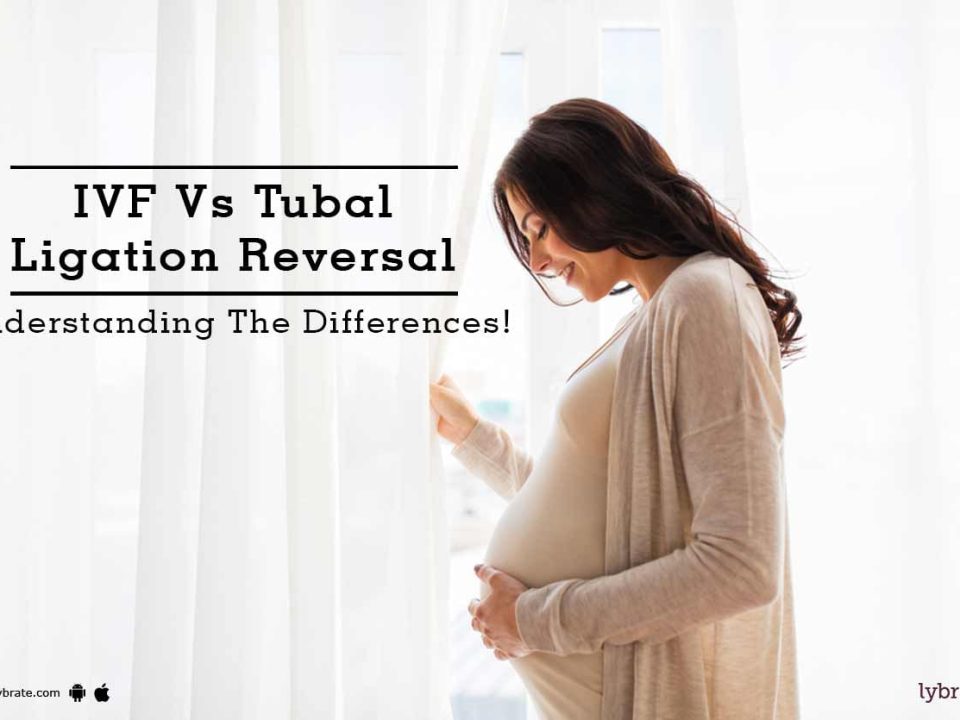Why Do Republicans Oppose IVF? A Deep Dive into the Debate
In vitro fertilization (IVF) has helped millions of families grow, offering hope to those struggling with infertility. It’s a medical marvel that’s become a lifeline for many. Yet, despite its popularity, IVF has found itself at the center of a heated political storm, especially among Republicans. You might’ve heard the headlines: Senate Republicans blocking IVF protection bills, or party leaders wrestling with their stance after controversial court rulings. It’s confusing, right? Republicans often call themselves pro-family, so why would they oppose something that helps people have kids?
The truth is, it’s not a simple yes-or-no issue. There’s a tangle of beliefs, laws, and emotions at play. In this article, we’ll unpack the reasons behind this opposition, explore what’s driving the debate, and dig into angles you won’t find in every news story. Whether you’re curious about the politics, worried about your own access to IVF, or just trying to make sense of it all, stick with me—we’re going deep.
The Roots of Republican Opposition: Where It All Starts
At first glance, opposing IVF seems out of character for a party that champions family values. But the resistance isn’t about rejecting babies or parenthood—it’s about what happens before the baby arrives. For many Republicans, especially those with strong conservative or religious roots, the process of IVF raises tough questions about life, morality, and science.
The big sticking point? Embryos. IVF often involves creating multiple embryos in a lab, implanting one or two, and deciding what to do with the rest. Some get frozen for later, others are donated, and some are discarded. To folks who believe life begins at conception (when sperm meets egg), those leftover embryos aren’t just cells—they’re potential human beings. Discarding them feels, to them, like ending a life.
This belief isn’t new. It’s tied to the “pro-life” movement, a cornerstone of Republican identity for decades. A 2023 Pew Research survey found that 74% of Republicans say they believe life begins at conception, compared to just 35% of Democrats. That’s a huge gap, and it shapes how each side sees IVF. For many Republicans, supporting IVF means wrestling with the idea that some embryos won’t make it—a moral conflict they can’t ignore.
But it’s not just about personal beliefs. These views have made their way into laws and policies, sparking real-world consequences. Take the Alabama Supreme Court ruling in February 2024: it declared frozen embryos “children” under state law. Clinics paused IVF services, fearing lawsuits, and the ripple effect hit families nationwide. Republicans had to respond, and their answers weren’t always unified.
The Alabama Fallout: A Turning Point in the IVF Debate
Picture this: you’re in Alabama, mid-IVF cycle, and suddenly your clinic calls to say they’re halting treatments. That’s what happened after the state’s Supreme Court dropped a bombshell ruling. They said embryos—frozen or not—are legally kids. It wasn’t about banning IVF outright, but the decision made clinics nervous. Could they be sued for discarding embryos? What about storage mishaps? The uncertainty was enough to freeze operations.
Republicans scrambled. Leaders like Donald Trump and Senator Katie Britt voiced support for IVF, calling it “pro-family.” Alabama’s legislature quickly passed a fix to shield clinics from liability, restoring access. But the damage was done—Democrats pounced, arguing this was proof of a broader Republican attack on reproductive rights, post-Roe v. Wade.
Here’s where it gets messy. Many Republicans had backed “personhood” laws—bills saying life starts at conception—long before this ruling. The Life at Conception Act, co-sponsored by over 160 House Republicans (including Speaker Mike Johnson), is a prime example. It doesn’t mention IVF directly, but if embryos are legally people, IVF’s standard practices (like discarding extras) could be at risk. Critics say Republicans can’t have it both ways—supporting IVF while pushing laws that might limit it.
So, why the opposition? It’s not always about banning IVF. For some, it’s about regulating it—limiting how many embryos are made or what happens to them. Others see it as a slippery slope: if embryos are people, IVF’s whole framework might need rethinking. The Alabama mess showed how fast theory can turn into reality, and it’s left the party divided.
Quick Poll: What’s Your Take?
- Do you think embryos should have legal rights? (Yes/No)
- Should IVF be fully protected, no strings attached? (Yes/No)
Drop your thoughts in the comments—I’m curious where you stand!
Religious Influence: The Moral Compass Guiding the Debate
Faith plays a huge role in this story. Many Republicans lean on religious values, especially evangelical Christianity, which has a big voice in the party. The Southern Baptist Convention, America’s largest Protestant group, made waves in 2024 when it formally opposed IVF. Their reasoning? The process “dehumanizes” embryos by creating extras that might be discarded or tested for defects.
This isn’t fringe stuff. A 2024 Gallup poll found that 55% of Republicans identify as highly religious, compared to 28% of Democrats. For these voters, IVF isn’t just a medical choice—it’s a spiritual one. Some worry it’s “playing God,” tinkering with life in ways nature didn’t intend. Others point to preimplantation genetic testing (PGT), where embryos are screened for diseases or traits. To critics, this feels like eugenics—picking “perfect” babies and tossing the rest.
But not all religious Republicans agree. Some, like Senator Rick Scott (whose daughter used IVF), argue it’s a blessing that helps families grow. The tension here is real: how do you balance faith with the desire to support parenthood? It’s a question the party hasn’t fully answered, and it’s fueling the push-pull over IVF.
Political Strategy: IVF as an Election Hot Potato
Let’s talk politics. IVF isn’t just a moral issue—it’s a campaign issue. After Roe v. Wade fell in 2022, reproductive rights became a lightning rod. Democrats saw an opening with IVF, especially after Alabama. They’ve pushed bills like the Right to IVF Act, which would protect access nationwide. Senate Republicans blocked it—twice in 2024 alone—calling it overreach. But why risk looking anti-family in an election year?
Strategy’s part of it. Republicans don’t want to alienate voters who love IVF (and polls show most Americans do—87% support it, per a 2023 YouGov survey). But they also don’t want to lose their conservative base, which might see federal IVF protections as a step too far. It’s a tightrope walk. Leaders like John Thune say, “Republicans support IVF, full stop,” yet vote against bills that would lock in that support. Why? They argue state laws should handle it, not Washington.
Then there’s Trump. In August 2024, he promised free IVF for all—government or insurance would pay. It was a curveball, clashing with small-government Republicans who hate mandates. Religious conservatives weren’t thrilled either, given the embryo issue. His flip-flop highlights the party’s bind: IVF’s popular, but the details trip them up.
IVF By the Numbers: What’s at Stake?
| Stat | Figure | Source |
|---|---|---|
| Americans using IVF | 1 in 6 infertile | National Infertility Association |
| Embryos frozen in U.S. | Over 1 million | Reproductive Medicine Associates |
| Cost per IVF cycle | $12,000–$25,000 | American Society for Reproductive Medicine |
| Public support for IVF | 87% | YouGov 2023 |
These numbers show why IVF matters—and why the debate’s so intense.
Unexplored Angles: What’s Missing from the Conversation
Most articles stop at embryos and politics, but there’s more to unpack. Let’s dig into three areas you won’t find everywhere else—they’re key to understanding the full picture.
1. The Economic Burden of IVF Regulation
If Republicans push for tighter rules (say, limiting embryo creation), costs could skyrocket. Clinics might need more storage, legal protections, or staff to comply. A 2024 study from the American Society for Reproductive Medicine estimated that regulating embryo disposal could add $5,000 per cycle. For families already stretched thin, that’s a dealbreaker. Republicans haven’t fully grappled with this—could their “pro-life” stance accidentally price out the very families they want to help?
Tip: If you’re planning IVF, ask your clinic about state laws. Some offer “mini-IVF” (fewer embryos, lower cost) as a workaround.
2. The Science Gap: What We Don’t Know About Embryos
Here’s a curveball: science isn’t settled on when life begins. A 2023 review in Nature found that embryo viability varies wildly—only 30-50% of fertilized eggs implant naturally. So, are all embryos “people”? Republicans lean on faith, but the data’s murkier. This gap leaves room for debate: should policy hinge on belief or biology? It’s a question the party sidesteps, but it could shift the conversation if explored.
Fun Fact: In nature, half of all conceptions end before anyone knows—miscarriages are that common. IVF just makes the process visible.
3. The Adoption Alternative: A Missed Opportunity?
Conservatives often tout adoption as a pro-life win, but it’s rarely linked to IVF. What if unused embryos were donated to other couples instead of discarded? A 2024 report from the National Embryo Donation Center showed only 2% of frozen embryos are donated—most sit in limbo or get destroyed. Republicans could champion this, aligning their values with practical help. Why don’t they? It’s an untapped idea that could bridge the gap.
Action Step: If you’ve got extra embryos, look into donation programs. It’s a way to support life without breaking the bank.
What Can You Do? Practical Steps for Families
Worried about IVF access? You’re not alone. Here’s how to navigate the uncertainty, no matter where you live:
✔️ Research Your State Laws: Some states (like Louisiana) already restrict embryo disposal. Check yours on the Guttmacher Institute’s site.
✔️ Talk to Your Doctor: Ask how political shifts might affect your treatment. They’ve got the inside scoop.
✔️ Freeze Early: If you’re on the fence, freezing eggs (not embryos) sidesteps some ethical debates—and it’s cheaper upfront.
❌ Don’t Panic: Access isn’t gone yet. Most Republicans say they back IVF, even if their votes don’t always match.
❌ Avoid Delays: Clinics can pause fast (like in Alabama). If you’re mid-process, stay proactive.
Mini Quiz: Are You IVF-Ready?
- Do you know your state’s embryo laws? (Yes/No)
- Have you budgeted for extra costs if rules tighten? (Yes/No)
- Would you consider egg freezing as a backup? (Yes/No)
Score 3/3? You’re ahead of the game!
The Bigger Picture: Where’s This Heading?
Republicans aren’t a monolith. Some, like Senator Susan Collins, vote for IVF protections. Others, tied to personhood laws, want limits. The party’s split reflects a broader tug-of-war: tradition versus progress, faith versus science. As of April 2025, no federal ban looms, but state-level changes could patchwork the U.S.—accessible here, restricted there.
What’s next? Elections matter. If Democrats win big in 2026, IVF might get a national shield. If Republicans hold power, expect more state battles. Trump’s free-IVF pledge could sway things too—if he means it. Meanwhile, families wait, caught in the crossfire.
A Personal Story: IVF in the Real World
Meet Sarah, a 34-year-old from Texas. She and her husband tried IVF in 2023, creating five embryos. Two worked—twins!—but the other three sit frozen. “I’m pro-life,” she says, “but I don’t know what to do with them. Donate? Destroy? It’s tearing me up.” Sarah’s a Republican, but the party’s stance leaves her lost. Her story’s not unique—millions face this dilemma, and politics isn’t making it easier.
Wrapping Up: Finding Clarity in the Chaos
So, why do Republicans oppose IVF? It’s not one answer—it’s a mix of faith, fear, and philosophy. Some see embryos as lives to protect, others worry about science run amok. Politics and religion amplify the clash, but the heart of it is human: how do we define life, and who gets to decide?
This isn’t just a Republican issue—it’s an American one. IVF’s here to stay, but its future depends on us. Stay informed, talk to your reps, and if it’s your journey, don’t let the noise drown out your hope. Families are worth fighting for, whatever side you’re on.
What do you think—should IVF be a free-for-all, or does it need guardrails? Share below—I’d love to hear your voice in this debate!





